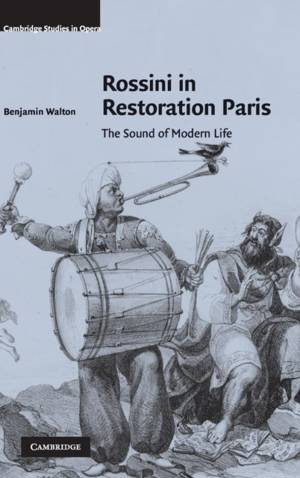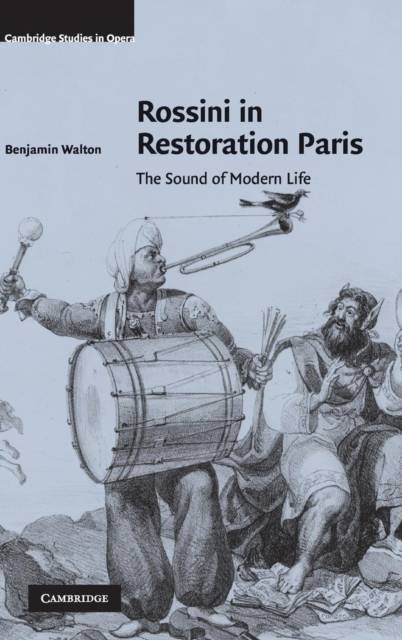
Je cadeautjes zeker op tijd in huis hebben voor de feestdagen? Kom langs in onze winkels en vind het perfecte geschenk!
- Afhalen na 1 uur in een winkel met voorraad
- Gratis thuislevering in België vanaf € 30
- Ruim aanbod met 7 miljoen producten
Je cadeautjes zeker op tijd in huis hebben voor de feestdagen? Kom langs in onze winkels en vind het perfecte geschenk!
- Afhalen na 1 uur in een winkel met voorraad
- Gratis thuislevering in België vanaf € 30
- Ruim aanbod met 7 miljoen producten
Zoeken
Omschrijving
Best remembered for such light-hearted works as Il barbiere di Siviglia, Gioachino Rossini produced a sequence of large-scale serious French operas after his move to Paris in 1824 which overwhelmed audiences with their musical power, and responded to the French Restoration. Rather than presenting a traditional account of Rossini's life and works, Benjamin Walton traces instead the shifting patterns of Rossinian criticism from before the composer's arrival in Paris to the end of the 1820s, outlining a type of musical history that uses immersion in a narrow time period as a way to reconceive the relationships between opera and the wider currents of life outside the opera house. In place of the comic Rossini of later memory, this book argues for a composer whose music resonated with the experience of contemporary life, and was integrally bound up in the struggle to define French romanticism at the time.
Specificaties
Betrokkenen
- Auteur(s):
- Uitgeverij:
Inhoud
- Aantal bladzijden:
- 368
- Taal:
- Engels
- Reeks:
Eigenschappen
- Productcode (EAN):
- 9780521870603
- Verschijningsdatum:
- 13/12/2007
- Uitvoering:
- Hardcover
- Formaat:
- Genaaid
- Afmetingen:
- 161 mm x 229 mm
- Gewicht:
- 707 g

Alleen bij Standaard Boekhandel
+ 412 punten op je klantenkaart van Standaard Boekhandel
Beoordelingen
We publiceren alleen reviews die voldoen aan de voorwaarden voor reviews. Bekijk onze voorwaarden voor reviews.









